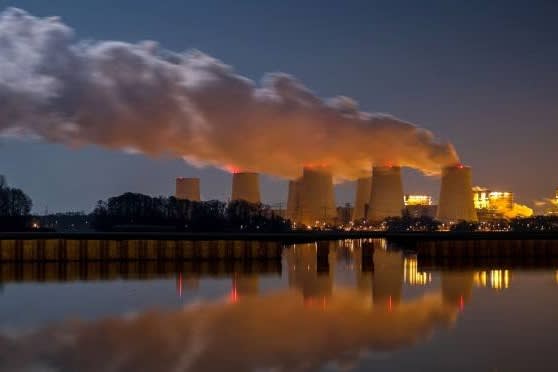South Korean state groups back $127bn in global fossil fuel projects

Oil & Gas industry updates
Sign up to myFT Daily Digest to be the first to know about Oil & Gas industry news.
South Korea’s public financial institutions have provided more than $127bn for global fossil fuel projects over the past decade, an environmental group has said, as the country faces pressure to respond to climate change.
The report by Solutions For Our Climate, a non-governmental organisation, has highlighted investments by South Korean state banks and companies in overseas oil and gas projects as the country struggles to make headway on reducing carbon emissions. South Korea is the second-biggest public financier of oil and gas projects worldwide, after China, according to the SFOC.
While many economies, including South Korea, have pledged to stop investing in coal projects, activists are turning their attention to oil and gas.
S-run financial institutions such as the Korea Development Bank, the Export-Import Bank of Korea (KEXIM) and the Korea Trade Insurance Corp remain big sponsors of oil and gas globally.
Public financing for overseas oil and gas projects was 13 times greater over the past 10 years than that for coal-fired power generation, which amounted to $10bn, SFOC said.
“The figures are shocking. South Korea has long been criticised as a ‘climate villain’ for providing massive support to overseas coal projects, but the country’s newly revealed public finance to overseas oil and gas completely dwarfs its backing of coal,” said Sejong Youn, an SFOC director.
About $57.7bn of Korea’s financing to overseas oil and gas projects was on offshore power plants and shipbuilding, a sector in which the country is one of the world’s biggest players.
Among the projects highlighted by SFOC was a $5.6bn Australian liquefied natural gas development, in which South Korea conglomerate SK E&S holds a 37.5 per cent stake with financial support from KEXIM. SFOC called it one of the most world’s most polluting offshore gas projects.
SFOC urged South Korea to follow the UK, Sweden and the US and stop funding new oil and gas projects, warning that public financing of the sector would cement the country’s economic dependence on fossil fuels.
“The oil and gas financing discussion has not even begun,” said Youn. “South Korea has always viewed overseas oil and gas investment as an energy security issue because the nation relies entirely on imported fossil fuel.”
Youn added that Seoul’s heavy investment in fossil fuels contradicted President Moon Jae-in’s promise to reach carbon neutrality by 2050.
Korea derives just 5 per cent of its electricity from renewable sources, government data shows.
Prime Minister Kim Boo-kyum said Korea would “actively join” an international campaign against global warming through legislation aimed at achieving carbon neutrality.
“Our industry structure, which is energy-intensive, has made the country a manufacturing powerhouse. But it is time for us to respond to the global issue of a climate crisis,” he told the Financial Times.
Environmentalists argue that fuels such as LNG gave off significant amounts of greenhouse gases during extraction, processing and transportation. The International Energy Agency warned in May that all new oil and gas exploration projects must stop this year to keep global warming under control.
KDB and KTIC declined to comment on SFOC’s report.
KEXIM said it had supported environmentally friendly and renewable energy businesses abroad with Won5.5tn ($4.7bn) in spending last year.
Twice weekly newsletter
Energy is the world’s indispensable business and Energy Source is its newsletter. Every Tuesday and Thursday, direct to your inbox, Energy Source brings you essential news, forward-thinking analysis and insider intelligence. Sign up here.
Climate CapitalTwice weekly newsletter

Where climate change meets business, markets and politics. Explore the FT’s coverage here.
Are you curious about the FT’s environmental sustainability commitments? Find out more about our science-based targets here